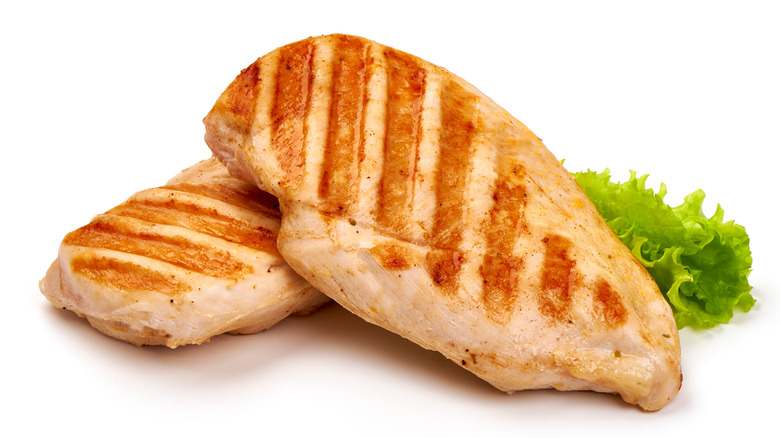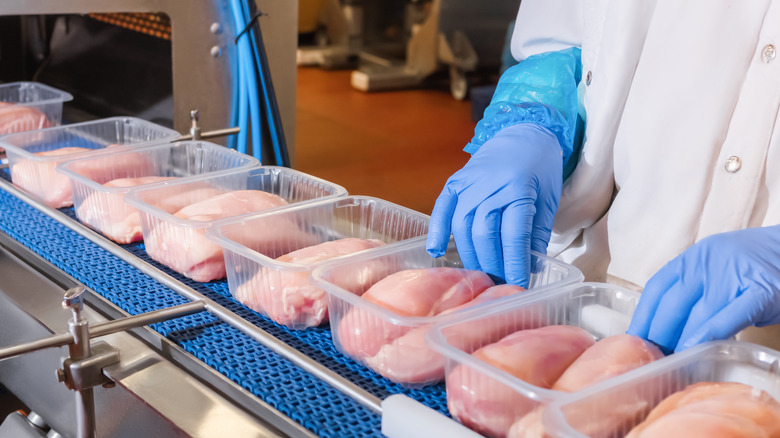Frozen Chicken Vs Fresh: Is There A Nutritional Difference?
There are a lot of advantages to frozen foods — they're convenient, typically more affordable, come with a minimal (if any) risk of spoilage, and are perfect for purchasing in bulk and having on hand for easy, last-minute meals.
There are also a lot of nutritional advantages to chicken — high in protein, lower in fat than other animal sources of the macronutrient, high in vitamins and minerals such as B12 and zinc, according to WebMD, and a pretty versatile protein fit for everything from sandwiches to stir-fries.
You may have heard that frozen fruits and vegetables may actually be slightly higher in vitamins and minerals at this point. This is due to them being picked at peak ripeness and immediately frozen, eliminating the need to adjust for travel time from the farm to the warehouse. But what about animal protein? If there's no degree of ripeness for a piece of chicken, does freezing the meat affect its nutritional content for better or worse, or not at all?
It's all about the how
The answer comes down to when and where the chicken is frozen. While meat doesn't have that peak ripeness that fruits and vegetables do, whether or not it's frozen onsite and with a commercial process or if you throw a pack into your freezer chasing that use-by date comes into play.
Consider onsite being its peak. When packed professionally, the chicken typically retains all nutrients as it is frozen quickly and at a very cold temperature. Your home freezer doesn't have the same power to get as cold as fast as the professional equipment and process. So when you move the chicken from the fridge to the freezer at home, some of its juices are lost (and thus nutrients) in the slower freezing process, and ice crystals form. The Brazilian Journal of Poultry Science reports this affects the nutrition and texture of the meat as it thaws. This does not occur during the industrial freezing process, so the nutritional profile remains very similar to that of fresh chicken (via Five Star Home Foods).
Bottom line? If you're stocking up to have chicken on hand that you know you won't consume immediately, purchase it already frozen by the pros. And if you have a pack of the fresh stuff about to go bad, don't worry about popping it into your freezer — the nutrient loss is minimal and you'll skirt any food waste. There are some general rules of thumb to follow, like keeping it at 0 degrees Fahrenheit or lower to keep the quality as intact as possible (via NCSU).

